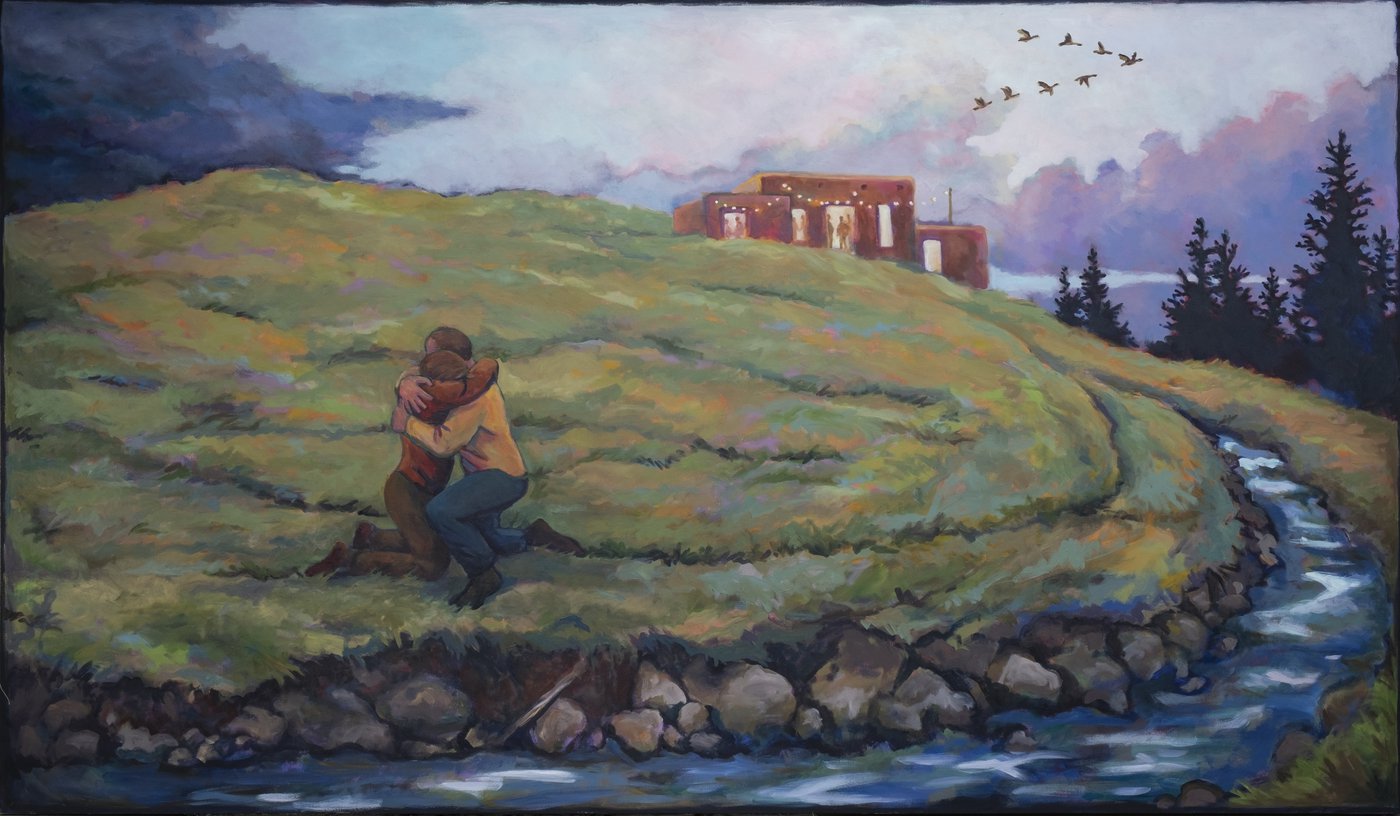IMPORTANT NOTE TAKING NOTES
- You can take notes on this page and email them to yourself at the bottom of the page
- If you navigate away from this page before you email yourself, YOU WILL LOSE YOUR NOTES
- You may take notes anytime and email them to yourself as much as you'd like :)
Blessed: Merciful
Message Outline
Matthew 5:1–12 (NIV)
Now when Jesus saw the crowds, he went up on a mountainside and sat down. His disciples came to him, 2 and he began to teach them.
He said:
3 "Blessed are the poor in spirit,
for theirs is the kingdom of heaven.
4 Blessed are those who mourn,
for they will be comforted.
5 Blessed are the meek,
for they will inherit the earth.
6 Blessed are those who hunger and thirst for righteousness,
for they will be filled.
7 Blessed are the merciful,
for they will be shown mercy.
8 Blessed are the pure in heart,
for they will see God.
9 Blessed are the peacemakers,
for they will be called children of God.
10 Blessed are those who are persecuted because of righteousness,
for theirs is the kingdom of heaven.
11 Blessed are you when people insult you, persecute you and falsely say all kinds of evil against you because of me. 12 Rejoice and be glad, because great is your reward in heaven, for in the same way they persecuted the prophets who were before you."
“7You’re blessed when you care. At the moment of being ‘care-full,’ you find yourselves cared for. (The
Message)
A Posture of Mercy
Confessing
“There is a strength, a power even, in understanding brokenness, because embracing our brokenness creates a need and desire for mercy, and perhaps a corresponding need to show mercy. When you experience mercy, you learn things that are hard to learn otherwise. You see things you can’t otherwise see; you hear things you can’t otherwise hear. You begin to recognize the humanity that resides in each of us.” – Bryan Stevenson, Just Mercy
Remembering
How does the Bible tell the story of God’s mercy?
(Isaiah 30:18, Lamentations 3:22-23, Luke 6:27-36, James 2:13)
Returning
“In my view, Jesus changed lives because he was able to change the way people imagined their lives. He dared them to imagine the stranger as neighbor, the child as teacher, the enemy as mirror, the deity as loving father. He helped them imagine lepers, women, and Roman centurions as exemplars of faith. He asked them to imagine that the most important person at the table was the waiter, and that the end of the line was the place to be. At the moment, I cannot think of a single story he told that was not intended to change the way his listeners imagined the world.” – Barbara Brown Taylor
Small Group Questions

CONNECT WITH GOD (select one of the below practices to begin your small group time this week or select a practice from a previous week.)
Breath Prayer: This is an ancient practice that invites us to slow down from and awaken ourselves—even our breath—to the presence of God. It is an invitation to remember that God is closer to us than even our own breath! This week you are invited to use the phrase: “Lord Jesus Christ, Son of God, have mercy on me, a sinner.” As you focus on breathing in and out, allow the words to flow out from inward breath to outward breath.
- Inhale: “Lord Jesus Christ, Son of God.”
- Exhale: “Have mercy on me, a sinner.”
Continue on for a few minutes at a slowed pace, making space for a growing awareness of God’s Holy Spirit.
Use the Lenten Card for Reflection
Alone: Using the Lenten card passed out on Sunday, February 19, spend 10 minutes engaging with the suggested practice of confessing, remembering, and returning.
CONNECT WITH EACH OTHER
Together: Read Matthew 5:1-12 (focusing in on verse 7) and Luke 6:27-36.
- After you have read, reflect as a whole group on the two passages. Consider the following questions:
- What is mercy?
- What stories of mercy come to your mind?
CONNECT WITH SCRIPTURE (Read the passages and review the sermon outline. Then select the best questions or customize the questions for your group.)
- Read the main points from the sermon outline.
- What questions, observations, or reactions do you have after reflecting on the passage and sermon?
- How does the Bible tell the story of God’s mercy? Choose a few of the below passages to support your reflections:
- Exodus 34:6, Micah 6:8, Lamentations 3:22, Psalm 86:5, Psalm 103:8, Luke 6:36, Ephesians 2:4, 1 Peter 1:3, James 2:13
- In Hebrew the word for mercy comes from the root word meaning ‘womb’. Reflect together on how that connects to biblical mercy.
- What does it mean to be merciful?
- Discuss how the words of Jesus in verse 7 would have been received in the context of Jesus’ time and place.
- How is Jesus shaping a new vision of community in God’s kingdom?
CONNECT WITH GOD’S MISSION IN THE WORLD
Reflect and respond to the quote below from Bryan Stevenson:
“There is a strength, a power even, in understanding brokenness, because embracing our brokenness creates a need and desire for mercy, and perhaps a corresponding need to show mercy. When you experience mercy, you learn things that are hard to learn otherwise. You see things you can’t otherwise see; you hear things you can’t otherwise hear. You begin to recognize the humanity that resides in each of us.” -Bryan Stevenson, Just Mercy
PRAYER
Pray the Lord’s Prayer together as a way to enter into a Lenten reminder of our own brokenness and need and God’s mercy to forgive us, love us, and welcome us into his kingdom.
“7You’re blessed when you care. At the moment of being ‘care-full,’ you find yourselves cared for.”
(The Message)

